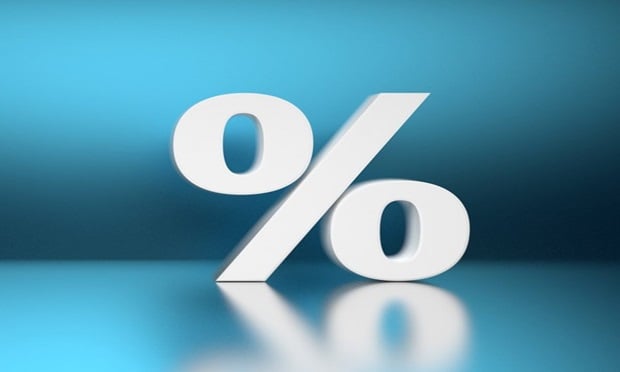
CHICAGO—As reported yesterday in GlobeSt.com, commercial real estate investors have a fairly complicated set of views on the new Trump administration. Some of the proposals talked about during the campaign have raised hopes that the first real estate developer president will make doing business much easier. But some in the industry have also worried that cutting off immigration or building obstacles to trade will have negative impacts on certain sectors such as apartments or industrial distribution.
Still, even though the Trump administration has introduced some uncertainty to where the US government and economy are headed, the overall picture seems healthy, and that has helped many who have questions about the nation's direction approach the future with some confidence.
“Real estate investors are cautiously optimistic in terms of the fundamentals,” Jacques Gordon, global head of research and strategy at LaSalle Investment Management, tells GlobeSt.com. The Chicago-based firm just published a report that examines President Trump's policy proposals and the possible impact on real estate markets.
Gordon points out that most markets and sectors are not overbuilt, and as long as the job market remains on a steady course, which he defines as generating around 150,000 jobs per month, “real estate is going to do just fine.”
And even if other portions of the economy experience turmoil, real estate, at least from an investment perspective, should do well. The stock market, for example, got a boost in the aftermath of the election, but then went into a decline. “If investors see their stock portfolio bouncing around,” Gordon says, income-producing assets in real estate will start to look even better.
So far, the big surprise of the Trump era has been how little change has occurred. “A lot of us thought that Trump's proposals would have more legislative traction,” Gordon says. “But it's just been chaos.”
The proposed repeal of the Affordable Care Act is a good example. It may have finally passed the House, but its future in the Senate remains uncertain. “The odds of that getting passed are very low,” Gordon says, but he still urges investors to watch its progress very carefully. In the past ten years or so, as health care providers have reconstructed their delivery systems, institutional investors have gotten far more involved in the sector. Therefore, although repeal is a low probability event, it also has the potential to have a major impact.
But as long as legislative chaos does not turn into economic chaos, Gordon says investors can feel a measure of confidence as they look ahead. “Change is definitely scary,” but considering the solid fundamentals of real estate, “the status quo is generally good.”

CHICAGO—As reported yesterday in GlobeSt.com, commercial real estate investors have a fairly complicated set of views on the new Trump administration. Some of the proposals talked about during the campaign have raised hopes that the first real estate developer president will make doing business much easier. But some in the industry have also worried that cutting off immigration or building obstacles to trade will have negative impacts on certain sectors such as apartments or industrial distribution.
Still, even though the Trump administration has introduced some uncertainty to where the US government and economy are headed, the overall picture seems healthy, and that has helped many who have questions about the nation's direction approach the future with some confidence.
“Real estate investors are cautiously optimistic in terms of the fundamentals,” Jacques Gordon, global head of research and strategy at LaSalle Investment Management, tells GlobeSt.com. The Chicago-based firm just published a report that examines President Trump's policy proposals and the possible impact on real estate markets.
Gordon points out that most markets and sectors are not overbuilt, and as long as the job market remains on a steady course, which he defines as generating around 150,000 jobs per month, “real estate is going to do just fine.”
And even if other portions of the economy experience turmoil, real estate, at least from an investment perspective, should do well. The stock market, for example, got a boost in the aftermath of the election, but then went into a decline. “If investors see their stock portfolio bouncing around,” Gordon says, income-producing assets in real estate will start to look even better.
So far, the big surprise of the Trump era has been how little change has occurred. “A lot of us thought that Trump's proposals would have more legislative traction,” Gordon says. “But it's just been chaos.”
The proposed repeal of the Affordable Care Act is a good example. It may have finally passed the House, but its future in the Senate remains uncertain. “The odds of that getting passed are very low,” Gordon says, but he still urges investors to watch its progress very carefully. In the past ten years or so, as health care providers have reconstructed their delivery systems, institutional investors have gotten far more involved in the sector. Therefore, although repeal is a low probability event, it also has the potential to have a major impact.
But as long as legislative chaos does not turn into economic chaos, Gordon says investors can feel a measure of confidence as they look ahead. “Change is definitely scary,” but considering the solid fundamentals of real estate, “the status quo is generally good.”
Want to continue reading?
Become a Free ALM Digital Reader.
Once you are an ALM Digital Member, you’ll receive:
- Breaking commercial real estate news and analysis, on-site and via our newsletters and custom alerts
- Educational webcasts, white papers, and ebooks from industry thought leaders
- Critical coverage of the property casualty insurance and financial advisory markets on our other ALM sites, PropertyCasualty360 and ThinkAdvisor
Already have an account? Sign In Now
*May exclude premium content© 2025 ALM Global, LLC, All Rights Reserved. Request academic re-use from www.copyright.com. All other uses, submit a request to [email protected]. For more information visit Asset & Logo Licensing.








